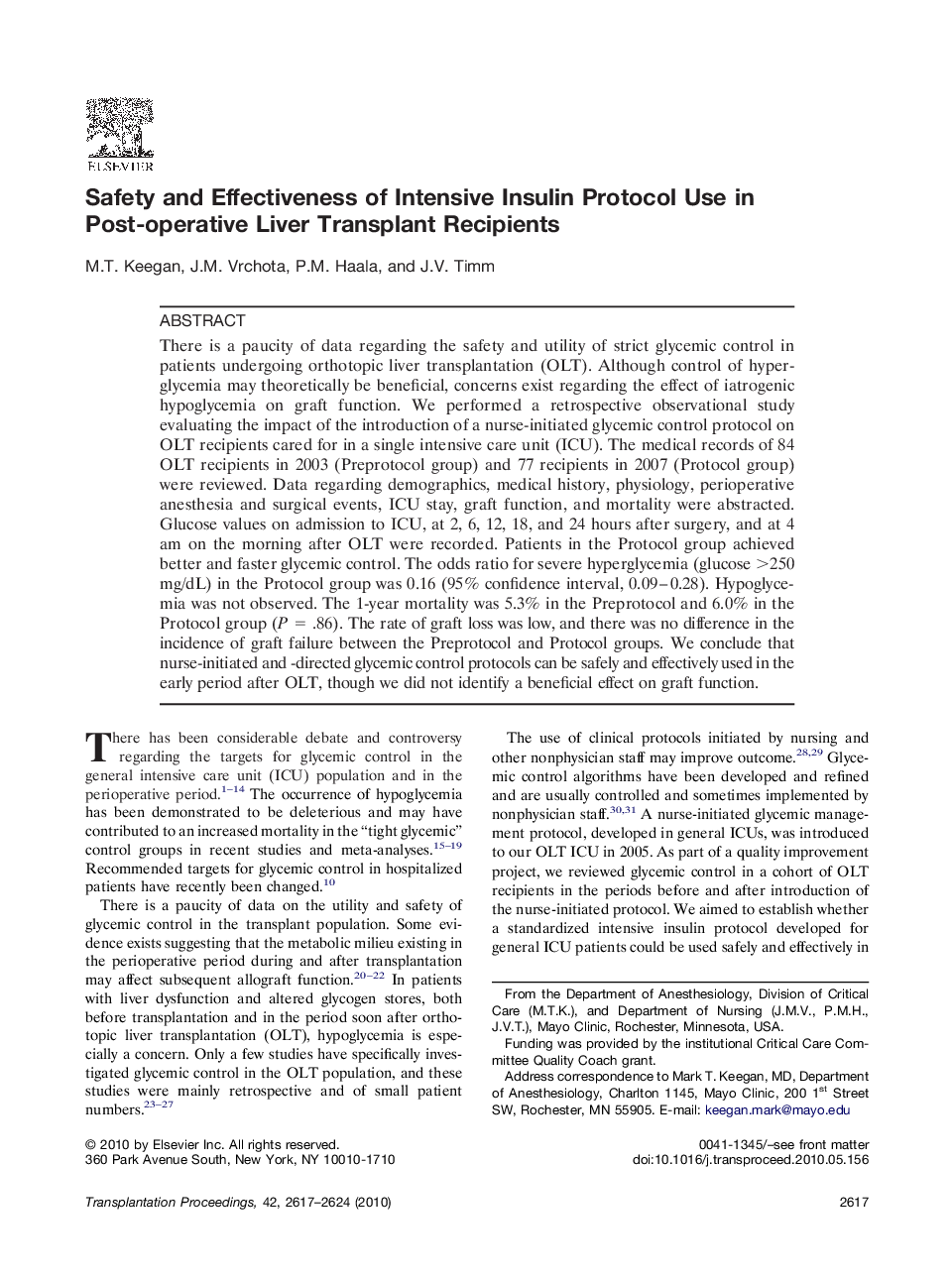| Article ID | Journal | Published Year | Pages | File Type |
|---|---|---|---|---|
| 4259449 | Transplantation Proceedings | 2010 | 8 Pages |
There is a paucity of data regarding the safety and utility of strict glycemic control in patients undergoing orthotopic liver transplantation (OLT). Although control of hyperglycemia may theoretically be beneficial, concerns exist regarding the effect of iatrogenic hypoglycemia on graft function. We performed a retrospective observational study evaluating the impact of the introduction of a nurse-initiated glycemic control protocol on OLT recipients cared for in a single intensive care unit (ICU). The medical records of 84 OLT recipients in 2003 (Preprotocol group) and 77 recipients in 2007 (Protocol group) were reviewed. Data regarding demographics, medical history, physiology, perioperative anesthesia and surgical events, ICU stay, graft function, and mortality were abstracted. Glucose values on admission to ICU, at 2, 6, 12, 18, and 24 hours after surgery, and at 4 am on the morning after OLT were recorded. Patients in the Protocol group achieved better and faster glycemic control. The odds ratio for severe hyperglycemia (glucose >250 mg/dL) in the Protocol group was 0.16 (95% confidence interval, 0.09–0.28). Hypoglycemia was not observed. The 1-year mortality was 5.3% in the Preprotocol and 6.0% in the Protocol group (P = .86). The rate of graft loss was low, and there was no difference in the incidence of graft failure between the Preprotocol and Protocol groups. We conclude that nurse-initiated and -directed glycemic control protocols can be safely and effectively used in the early period after OLT, though we did not identify a beneficial effect on graft function.
